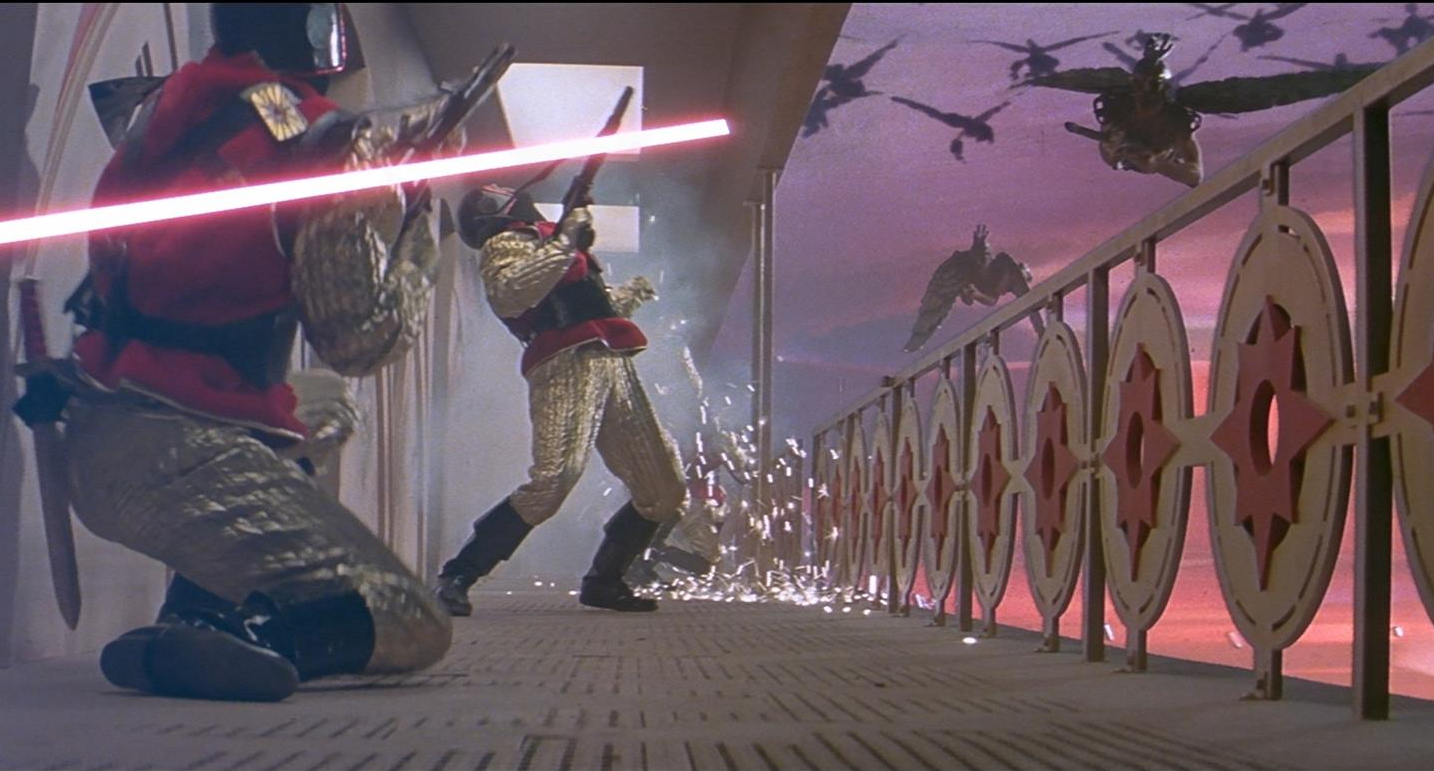The Speculative Future

In a future we once imagined (and do no more) people knew that the management of the world belonged to it’s best and brightest and that the world they had created, and the future-world which they promised, was not a fairy tale, but a natural and realistic outcome. A world which predicted flying cars and intelligent toaster ovens and jet-setting to Mars for morning tennis lessons. The world of tomorrow, spawned by heroic achievements in technology and speculation of a newly revealed cosmos, and in this speculation, spawning the optimistic and imaginatively fertile genre of science fiction.
Though it still exists today, in the mainstream it is now a ghost of it’s former self. This is due to our loss of optimism and heroic innovation, and our ever-steamrolling progression towards a phantom equity-utopia, which enviously abhors any heroic achievement, or any consideration above the price of bread. This future of our yesteryear (which is a galaxy removed from the world we live in today) illuminated our hearts and minds with the potentiality of human ability. Humanity’s bright future was among the stars – taming the universe with conquest.
Somewhere along the way our imaginations turned dark and cynical, and our attitude became unnecessarily negative and nihilistic towards the future itself. Out of seemingly nowhere, the objectively uplifting, virtuous and admirable world of tomorrow was crushed in the public imagination. It was mocked as being ‘over-sentimental’ by critics and small-souls who shrink with fear at the idea of the cosmos itself. The moneyed hands in our media dream factories turned to dystopian future-visions, and promoted a futureless here-and-now of endless consumer comfort, without need for dangerous exploration.
Not to say that dystopian sci-fi does not have it’s place in the genre, as a warning or dramatic example of endless struggle in the hero’s journey. But the idea of dystopian sci fi took a monopolistic dominance over mainstream fiction, along with endless ‘zombie movies’. This encouraged and strengthened the strange and hypocritical polarizers of the ’10-minutes-self-hate’, who see human wars and environmental damage and decide to endlessly squawk that ‘life is pointless’ and we all ‘deserve to die’ while they themselves consume and luxuriate and know nothing of self-sufficiency or the true endless-war of life. These common urban consumer types have no need for frontiers, or a history, or anything but a conveyor belt of tendies and trash Netflix originals. They do not intend, despite their talk, to kill themselves or cease consuming; they intend to signal and whine and bite like a vicious mongoose at idealism and optimism. The System which provides for them wants them in charge, as they exist symbiotically with the System, and so we have a needlessly negative and bleak speculative culture and media-fiction-monopoly for whom visions of a bright or magnificent future are outdated and unreal.
The world of tomorrow future was stifled and many do not yet even realize it is gone from popular conception. Men’s interests have been largely relegated (like rats being goaded in a maze) to inane, immediate, material concerns. For those most adept at ‘sensing the zeitgeist’, this loss of optimism is a palpable artifact of active civilizational decline. And that relation is the true import of imaginative fiction like sci fi, which if still uplifting and positive, would be an artifact of a healthy and upward striving contemporary (hi-tech) culture.
The human mind is so unbelievably powerful that whatever is rooted in
our collective unconscious shapes the very world. Currently we have a very dark and shattered unconscious, yet we have the ability to change this, to reject the false world-framework supplied to us by those who open and close the doors in the rat-maze. We have been dreamers and star gazers for all of our existence. Because the System is corrupt, inhuman, cultureless, and failing, it is the job of the independent creator to imagine and provide imaginative fiction, which is not negative and nihilistic, to a confused and imprisoned world. For sadly the world of today is a creative prison, and the walls of the maze are slowly tightening, in a fashion of torture perhaps yet unimagined by the best dystopian sci fi writers.











